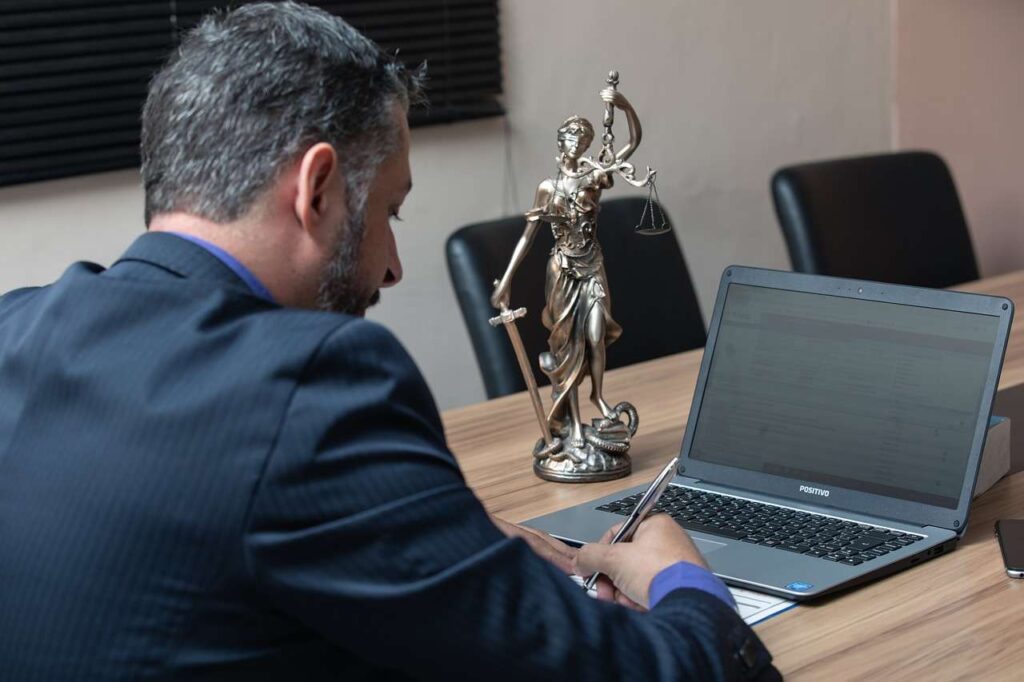
PR EDA : 572-335-4994

Lawyers provide legal guidance and counsel to individuals, businesses, and governments. They interpret laws, rulings, and regulations.
Work can be highly demanding and emotionally trying. Lawyers frequently encounter sensitive client matters, human suffering, and complex legal disputes which often take a heavy toll on both their personal and professional relationships. This work can have lasting repercussions.
Lawyers typically work more hours than people in other professions due to the nature of their work affecting real lives and having lasting consequences, making this profession worthy of such intense effort every day.
Lawyers typically work from private practices or law firms; however, some also serve in government legal departments or corporate environments. Furthermore, lawyers work alongside paralegals and assistants; furthermore they may even belong to professional associations.
Many lawyers prefer arriving early at their offices so they can quickly get to their tasks before it gets too hectic. This time is used for responding to emails and correspondence as well as reading any case-related material they need for preparation, and also creating various documents like memoranda or legal paperwork if required. They may also meet clients or coworkers during this time.
Lawyers spend much of their time in court. This is partly due to the impact that their work can have on people’s lives – clearing an individual of charges or helping them obtain compensation is often what drives lawyers beyond expectations to work hard and go the extra mile for clients.
Lawyers generally find mornings to be their most productive time at work, using this time to respond to emails, read messages received and prepare documents that will be used during hearings in the upcoming weeks.
Personal injury cases typically require doing research outside the office, such as visiting an accident scene to make their assessments – this work is known in law as “avail yourself”. Unfortunately, this part of their day can often prove hectic and stressful.
The afternoon is defined as the period between noon and the beginning of evening; however, lawyers use “in the afternoons” as a term to refer to work that occurs between other tasks; such as working on a client’s case while driving to or from work – but may not charge their client accordingly.
Employment lawyers often serve as mediators during afternoon hours, making sure a company’s policies conform with all relevant labor laws. This might involve negotiating with unions or providing advice regarding sexual harassment allegations against management.
Lawyers preparing to attend hearings on Friday might use the early part of their afternoon to review their cases and prepare motions, memoranda, or other legal paperwork – an especially productive use of time when court proceedings tend to be lower on Fridays than other weekdays. Furthermore, this time can give attorneys time to reflect upon past strategies as well as make plans for future engagements.
Lawyers frequently prioritize work over their mental wellbeing, leading them to experience burnout and anxiety. This is particularly prevalent for new grads struggling to keep pace with the firm culture and billable hours expectations.
Friday afternoons often provide an opportunity for lawyers to catch up on cases and complete administrative tasks without feeling pressure from hearings or trials scheduled in the coming week. A sense of achievement may give an extra boost of energy as they head into Monday.
Friday evenings present an invaluable opportunity to form professional relationships and potentially open doors to future business deals with other industries, making Friday nights especially useful in law firms where competitive and demanding environments may create feelings of inadequacy or doubt about career decisions – an issue many unhappy lawyers seek help for from Leave Law Behind in changing careers.